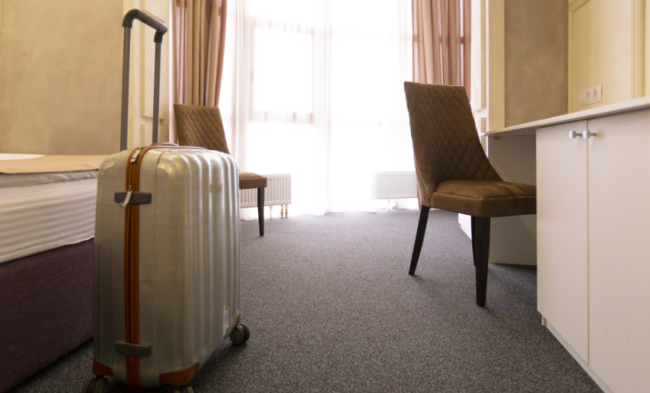You have /5 articles left.
Sign up for a free account or log in.

FabrikaCr / iStock
It's official: the American Historical Association will stop supporting first-round job interviews at its annual meeting.
The group floated the idea this spring, citing a decline in registered departmental searches -- from 270 for the 2005 conference to 20 this year -- and a desire to take the meeting in new directions.
After hearing overwhelming positive feedback from members, the AHA Council voted to end the 70-year-old tradition.
"This is an opportunity to rethink the annual meeting -- to make it into what it should be, rather than what it has always been," said James Grossman, executive director of the AHA. "Large numbers of historians of my generation still cringe at the memories of anxiety and pressure they felt at the meeting," when they were interviewees.
"Ask yourself what happens when you move from an annual meeting where anywhere from one-quarter to one-third of people there are looking for a job or hiring," Grossman continued, "to a meeting about professional development -- where people are there to learn and meet people. Which would you rather attend?"
Other professional organizations are rethinking the way they approach hiring at their annual meetings. The American Economic Association, for example, recently came out against single hotel-room interviews, citing association policies against sexual misconduct and the potential for abuse (never mind the set-up's general awkwardness).
"While interviewing in suites is considered acceptable, the AEA is strongly discouraging conducting interviews in a regular hotel room," the association announced. It will sell available suites at its the upcoming Allied Social Sciences Associations in San Diego only to employers conducting interviews. Ballroom meeting spaces also will be available.
Kathryn Holston, a Ph.D. candidate in economics at Harvard University, co-wrote a memo against single-room interviews that was shared widely last year.
"In some of the cases, one or more of the interviewers may be sitting on the bed. The candidate may even be asked to sit on the bed," Holston and her colleague, Anna Stansbury wrote. "Interviews in hotel bedrooms may be uncomfortable for many candidates. In addition, interviewing candidates in a hotel bedroom is likely to have disparate effects on candidates with different experiences, with the possibility for harming both individual candidates and the selection process more broadly."
Holston said recently that she's not interviewing yet, but learned about interview practices as an incoming Ph.D. student. Changing the economics interview culture is just one of a number of initiatives she's pushing through the Harvard Graduate Women in Economics group she co-founded.
The historical association and the Modern Language Association already have discouraged hotel room interviews -- the MLA stopped selling single rooms for interviews last year. Along with the AHA, the MLA has advocated that first-round interviews be conducted via videoconference -- in part to level the playing the field for those students who can easily afford to attend their annual meetings and those who can't. A 2018 survey of AHA members also revealed that many reviled the hotel room interview and wanted to see it die.
Paula Krebs, executive director of the MLA, said that "No one should be required to come to the convention for an interview," and that "departments seem to be taking our cue."
Rather than eliminating the MLA's convention career center, however, Krebs said they are "expanding the services we offer there." At the association's upcoming meeting in Seattle, for instance, it will host a career fair for the third time "to help job seekers learn about the range of careers open to candidates with advanced humanities training. We want grad students and early career scholars to come to the convention and take advantage of all the professional development opportunities we have to offer -- not to mention the chance to share their research and connect with fellow scholars. And we give out hundreds of travel grants each year to help them do it."
The historical association also supports students who wish to attend its meeting, and members may register high school, undergraduate or graduate students for $15 each. Some 500 students attended last year's meeting to share their research, network and attend professional development sessions. The AHA's major Career Diversity initiative, for instance, caters to students and other members considering or already working outside of faculty positions. And faculty members are responding, too: whereas assessment sessions used to attract a handful of people, one last year saw about 100 attendees.
As for enforcing for the AHA's new stance on interviews, John R. McNeill, professor of history Georgetown University and association president, wrote in a recent column in AHA's Perspectives on History that "Interviews might still take place. The AHA's power to command or ban behavior is small, and it cannot prevent people from holding interviews in coffee shops or hotel rooms."
Yet the association "can, does and will discourage the practice," McNeill said. "In the short run, that means that starting in 2020 the space formerly devoted to interviews at annual meetings will be used in other ways. In only a year or two, I expect, the convention interview will go extinct. Like many historians, I will remember a couple of my interviews as long as I live, but one day the conference interview will be a forgotten ritual."
Asked how the AHA would respond to a student or faculty complaint about some department holding an interview at a conference, against the new guidance, Grossman said that the association's code of conduct and relevant policies remain in effect.
"The point is we that the AHA itself is no longer formally a site for employment activities. People may do all sorts of things on their own," he said. "But we do have rules about harassment, and when people register for the annual meeting they agree to a certain standard of behavior. And if they violate this standard they'll be asked to leave."









